21 Aug 2019 | Turkey, Turkey Incident Reports
[vc_row][vc_column][vc_column_text]
Index on Censorship’s Monitoring and Advocating for Media Freedom project tracks press freedom violations in five countries: Azerbaijan, Belarus, Russia, Turkey and Ukraine. Learn more.
[/vc_column_text][/vc_column][/vc_row][vc_row][vc_column][vc_custom_heading text=”29 Incidents” use_theme_fonts=”yes”][vc_column_text]
UPDATE: Trial of journalist Atakan Sönmez adjourned until November
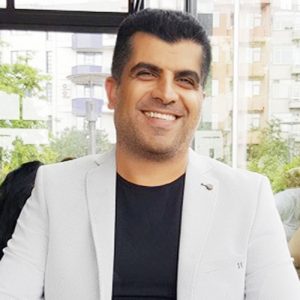
Atakan Sönmez
19 July 2019 – The fourth hearing in the trial of journalist Atakan Sönmez, the former news director of Cumhuriyet daily’s online edition, took place at the 13th High Criminal Court of Istanbul, P24 reported.
Sönmez is charged with “spreading propaganda for a terrorist organization” over the Cumhuriyet website’s coverage of Turkey’s 2018 military operation on Syria’s Afrin. In the previous hearing the prosecutor requested the court to convict the journalist of “systematically spreading propaganda for a terrorist organization.”
Sönmez asserted that none of the news stories that form the basis of the accusations included terrorist propaganda or any other criminal intent and requested to be acquitted. In its interim ruling, the court granted Sönmez exemption from appearing in court and adjourned the trial until 7 November 2019.
Link(s):
https://twitter.com/P24DavaTakip/status/1140881948937785344?s=20
Categories: Criminal Charges / Fines / Sentences
Source of violation: Court / Judicial
Journalist Adnan Bilen stands trial for “insulting the president”
19 July 2019 – Journalist Adnan Bilen’s trial on the charge of “insulting the president” in his social media posts got underway at the 4th Criminal Court of First Instance of Van, Mezopotamya news agency reported.
Bilen and his lawyer Haşem Baygümüş were in attendance in the courtroom. In his defense statement, Bilen said that the social media posts in question did not contain any insulting remarks. He also said those posts had been shared on social media by over 1 million people to date. “Are you going to press charges against all those 1 million people? Is this truly possible?” he asked.
Bilen’s lawyer requested the court to acquit his client. The court adjourned the trial until 8 November 2019.
Link(s):
http://mezopotamyaajansi21.com/tum-haberler/content/view/63929
https://www.evrensel.net/haber/383294/gazeteci-adnan-bilen-paylasimim-hakaret-degil-elestiridir
https://gazetekarinca.com/2019/07/paylasimlarimin-arkasindayim-diyen-gazeteci-bilenin-durusmasi-ertelendi/
Categories: Criminal Charges / Fines / Sentences
Source of violation: Court / Judicial
UPDATE: Retrial of Altans and Ilıcak case set to start in October
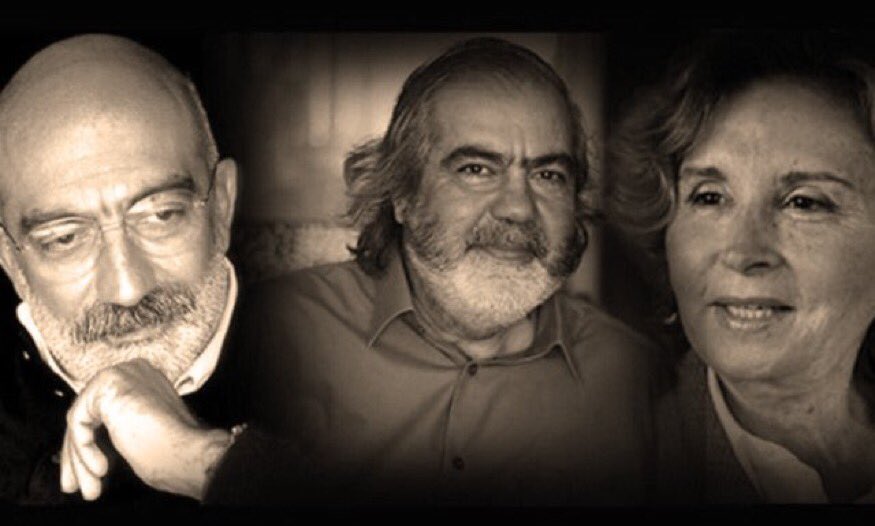
Ahmet Altan, Mehmet Altan and Nazli Ilcak
18 July 2019 – The criminal court that sentenced Ahmet Altan, Mehmet Altan, Nazlı Ilıcak and three of their co-defendants to aggravated life imprisonment in the “coup” case in 2018 will begin the retrial of the case on 8 October, P24 reported.
The 26th High Criminal Court of Istanbul, which will oversee the retrial after its initial verdict was overruled on appeal, rejected the requests for Ahmet Altan, Nazlı Ilıcak and their three co-defendants to be released pending trial. All five have been in pre-trial detention for almost three years as part of the case.
The trial court also ruled for Mehmet Altan, who was released pending trial last summer by the appellate court, to be “forcibly brought to the hearing.”
The retrial comes on the heels of a judgment by the Supreme Court of Appeals earlier this month, which overturned the trial court’s 2018 verdict and ordered a retrial.
Link(s):
https://www.evrensel.net/haber/383369/altanlar-davasinda-yeniden-yargilama-8-ekimde
http://www.platform24.org/guncel/3854/altanlar-davasinda-yeniden-yargilama-8-ekim-de
Categories: Criminal Charges / Fines / Sentences
Source of violation: Court / Judicial
UPDATE: Jailed journalist Harun Çümen given 7.5-years prison sentence
18 July 2019 – Jailed journalist Harun Çümen, who is the former responsible managing editor of the shuttered Zaman newspaper, was sentenced to 7 years and 6 months in prison on the charge of “membership in a terrorist organization” at the final hearing of his trial, P24 reported.
The 32nd High Criminal Court of Istanbul ruled to keep Çümen behind bars during the appeal process. Çümen has been in pre-trial detention for the past 16 months.
Link(s):
https://twitter.com/P24DavaTakip/status/1151785097860984834?s=20
https://aktifhaber.com/15-temmuz/gazeteci-harun-cumene-75-yil-hapis-cezasi-h135050.html
Categories: Criminal Charges / Fines / Sentences
Source of violation: Court / Judicial
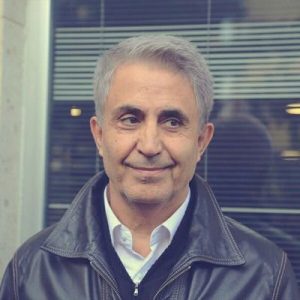
Musa Kart
UPDATE: Supreme Court prosecutor requests quashing of verdict in Cumhuriyet trial
18 July 2019 – The Office of the General Prosecutor of the Supreme Court of Appeals has requested the reversal of the verdict in the Cumhuriyet trial, online news website Anadolu Agency reported. Turkey’s highest appeal court is expected to review the prison sentences handed down for Cumhuriyet newspaper’s former journalists and executives Orhan Erinç, Akın Atalay, Murat Sabuncu, Hikmet Çetinkaya, Aydın Engin and Ahmet Şık for “aiding a terrorist organization without being its member” in the coming months.
The Office of the General Prosecutor of the Supreme Court of Appeals said in their judicial opinion that all defendants except Şık should be acquitted of all charges, while Şık should be charged with “praising a [terrorist] group and violence” and “spreading propaganda,” in which case he would face a combined sentence between 3.5 and 13.5 years.
The prosecutor asked the Supreme Court to reject the appeals filed by Emre İper and Ahmet Kemal Aydoğdu.
The prosecutor also sought the reversal of the verdicts for five former Cumhuriyet staffers – Musa Kart, Güray Öz, Önder Çelik, Hakan Kara and Mustafa Kemal Güngör – who are currently in prison. Their conviction became valid after a ruling by the Istanbul Regional Court as prison sentences less than five years can only be appealed once and are normally not subject to a review by the Supreme Court of Appeals.
The case file will be overseen by the 16th Criminal Chamber of the Supreme Court of Appeals.
Link(s):
https://t24.com.tr/haber/yargitay-dan-cumhuriyet-in-eski-yonetici-ve-yazarlarina-beraat-talebi,831166
https://bianet.org/bianet/insan-haklari/210611-yargitay-iki-kisi-disinda-cumhuriyetcilerin-beraatini-istedi
https://www.cnnturk.com/turkiye/cumhuriyet-gazetesi-davasinda-yargitay-bassavciligi-dosyayi-tamamladi
Categories: Criminal Charges / Fines / Sentences
Source of violation: Court / Judicial
UPDATE: Journalist Kibriye Evren ordered to remain behind bars
18 July 2019 – Jailed journalist Kibriye Evren, a reporter for the female news collective JinNews, appeared before a Diyarbakır court for the sixth hearing of her trial, P24 reported. Evren faces charges of “membership in a terrorist group” and “disseminating spreading for a terrorist group.”
The prosecution had submitted their final opinion of the case during the previous hearing, requesting the court to convict the journalist of both charges.
Addressing the 5th High Criminal Court of Diyarbakır for her defense statement, Evren said she has been jailed for the past 10 months based on statements by two secret witnesses and on her social media posts. Rejecting the accusations, Evren asked to be acquitted.
In its interim decision, the court ruled to inquire on the Şanlıurfa Chief Public Prosecutor’s Office about a 2016 investigation file against Evren on the allegation of “terrorist group membership.” The court ruled to keep Evren behind bars and adjourned the trial until 24 September 2019.
Link(s):
https://twitter.com/P24DavaTakip/status/1151742674178859008?s=20
http://gazetekarinca.com/2019/07/gazeteci-kibriye-evrenin-tutukluluguna-devam-karari/
Categories: Criminal Charges / Fines / Sentences
Source of violation: Court / Judicial
UPDATE: Can Dündar’s hearing on solidarity with Özgür Gündem adjourned
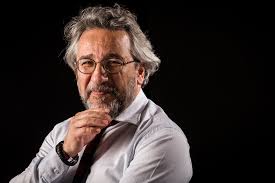
Can Dundar
18 July 2019 – The trial against the former editor-in-chief Can Dündar for joining the solidarity campaign with the now closed pro-Kurdish daily Özgür Gündem resumed in Istanbul, advocacy group Press in Arrest reported. The 22nd High Criminal Court of Istanbul, which oversees the trial, ruled to wait for the execution of the arrest warrant against Dündar and adjourned the trial until 28 November 2019. Dündar, who faces several trials and prison sentences, has been living abroad for more than two years.
Link(s):
https://twitter.com/PressInArrest/status/1151765873599926272?s=20
Categories: Criminal Charges / Fines / Sentences
Source of violation: Court / Judicial
UPDATE: Rights defenders acquitted in “Özgür Gündem solidarity trial”
17 June 2019 – The 11th hearing in the trial against Professor Şebnem Korur Fincancı, the president of the Human Rights Foundation of Turkey (TİHV), Erol Önderoğlu, Reporters Without Borders (RSF) Turkey representative, and journalist-writer Ahmet Nesin for joining in the “substitute editor-in-chief” campaign for the shuttered Özgür Gündem newspaper resumed at the Istanbul courthouse, P24 reported. All four were accused of “spreading propaganda for a terrorist organization,” “incitement to commit crime” and “praising crime and criminals.”
Issuing its verdict, the court acquitted all the rights defenders. It was the first acquittal ruling issued by a court for those who joined the “substitute editor-in-chief” campaign in solidarity with the pro-Kurdish newspaper. Murat Çelikkan and Ayşe Düzkan have already served prison sentences on the same charges.
Link(s):
https://twitter.com/P24DavaTakip/status/1151389531943428096?s=20
https://www.aljazeera.com/news/2019/07/rsf-turkey-representative-acquitted-terror-charges-190717102827047.html
https://t24.com.tr/haber/erol-onderoglu-sebnem-korur-fidanci-ve-ahmet-nesin-ozgur-gundem-davasinda-beraat-etti,831019
Categories: Criminal Charges / Fines / Sentences
Source of violation: Court / Judicial
UPDATE: Eren Keskin’s file separated in Özgür Gündem case, trial adjourned
17 July 2019 – The 12th hearing in the trial against Eren Keskin and Hüseyin Aykol, the former co-editors-in-chief of the closed down pro-Kurdish newspaper Özgür Gündem, its former responsible managing editor Reyhan Çapan and journalist Hasan Başak resumed in Istanbul, P24 reported. All four face charges of “praising crime and criminal,” “incitement to commit crimes” and “spreading propaganda for a terrorist organization”.
Keskin’s file has been separated from the case and sent to the 23rd High Criminal Court; it will be merged with the ongoing main trial, where she faces similar accusations.
The prosecutor submitted their final opinion, asking the court to convict Aykol, Çapan and Başak of “praising crime and criminals” and “incitement to commit crime.” The prosecutor also sought prison terms for Aykol and Başak on the “propaganda” charge, while they asked the court to convict Çapan of “systematically spreading terrorism propaganda.”
Granting time for the preparation of the final defense statements in response to the prosecutor’s final opinion, the court adjourned the trial until 21 November 2019.
Link(s):
https://twitter.com/P24DavaTakip/status/1151416664275214336?s=20
http://gazetekarinca.com/2019/07/ozgur-gundem-davasi-aykol-dahil-yedi-gazeteciye-ceza-istendi/
https://bianet.org/bianet/ifade-ozgurlugu/210568-huseyin-aykol-reyhan-capan-ve-hasan-basak-a-ceza-talebi
Categories: Criminal Charges / Fines / Sentences
Source of violation: Court / Judicial
Journalist Necla Demir faces new criminal investigation over anonymous tip
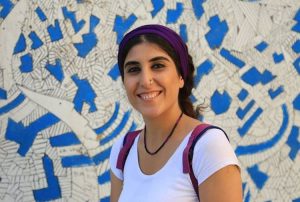
Necla Demir
17 July 2019 – The Chief Public Prosecutor’s Office of Bakırköy in Istanbul has launched a new investigation against journalist Necla Demir, the former publisher of the online news portal Gazete Karınca, the website reported. The allegation in the new investigation file is “incitement to hatred and animosity.”
The investigation was launched upon an anonymous tip filed with the Presidency’s Communication Center (CIMER).
Demir was referred her to a Criminal Judgeship of Peace after being interrogated by the prosecutor, who requested the implementation an international travel ban and other judicial control measures. In the previous case, the judgeship ruled that Demir did not have any intent of committing a crime and her actions were aimed at informing the public.
Link(s):
http://gazetekarinca.com/2019/07/gazeteci-necla-demire-bu-kez-de-isimsiz-ihbarla-sorusturma/
https://www.gazetefersude.com/gazeteci-necla-demire-isimsiz-ihbarla-sorusturma-acildi-67077/
https://www.gercekgundem.com/medya/106164/gazeteciye-isimsiz-ihbardan-sorusturma
Categories: Criminal Charges / Fines / Sentences
Source of violation: Court / Judicial
UPDATE: Journalist Deniz Yücel’s trial adjourned until October
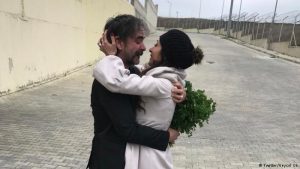
Deniz Yücel’s lawyer, Veysel Ok, tweeted a picture of Yücel and his wife, Dilek Mayatürk, hugging in front of Istanbul’s Silivri prison. (Photo: Veysel Ok / Twitter)
16 July 2019 – The trial of Turkish-German journalist Deniz Yücel, the former Turkey correspondent of the German newspaper Die Welt, on the charges of “spreading propaganda for a terrorist group” and “inciting hatred and animosity” resumed at the 32nd High Criminal Court of Istanbul, P24 reported.
The presiding judge announced that the court has just received the Constitutional Court’s ruling concerning the individual application of Yücel, in which the top court had ruled that Yücel’s pre-trial detention violated his rights to liberty and security, freedom of expression and freedom of the press.
Yücel’s lawyer then asked the trial court to acquit Yücel in line with the Constitutional Court ruling and without waiting for the defense statement, taken in May in Berlin, to be sent to the trial court. In its interim ruling, the court decided to wait until they receive Yücel’s statement and adjourned the trial until 17 October 2019.
Link(s):
https://twitter.com/P24DavaTakip/status/1151048073197604870?s=20
http://www.cumhuriyet.com.tr/haber/turkiye/1490128/Deniz_Yucel_davasinin_4._durusmasi__istinabe_evraki_bekleniyor.html
https://gazetekarinca.com/2019/07/aym-hak-ihlali-karari-vermisti-deniz-yucelin-durusmasi-ertelendi/
Categories: Criminal Charges / Fines / Sentences
Source of violation: Court / Judicial
Sendika.org editor Demirhan given jail term for “insulting the president”
16 July 2019 – Ali Ergin Demirhan, an editor for the news portal Sendika.Org, has been sentenced to 11 months and 20 days in prison on the charge of “insulting the president.”
Demirhan was on trial because of a social media post he had shared. The court deferred Demirhan’s sentence by five years, during which he would be subject to probation. Demirhan announced the verdict against him on 16 July 2019 in his Twitter account.
Link(s):
https://twitter.com/ali_ergind/status/1151050770248294400
http://sendika63.org/2019/07/erdogana-hakaretten-11-ay-20-gun-hapis-cezasi-alan-demirhan-yazdiklarim-hakaret-degil-sorumlulugumun-geregidir-555007/
https://www.gazetefersude.com/gazeteci-ali-ergin-demirhana-erdogana-hakaret-suclamasiyla-hapis-cezasi-66919/
Categories: Criminal Charges / Fines / Sentences
Source of violation: Court / Judicial
Journalist Ahmet Kanbal briefly detained
15 July 2019 – Ahmet Kanbal, a reporter for the Mezopotamya news agency, was taken into custody on 13 July 2019 in the southeastern province of Mardin, where he lives, the agency reported.
Kanbal was charged with “spreading propaganda for a terrorist group” over his social media posts and referred to the courthouse on 15 July. The court he was referred to by the prosecutor released Kanbal under judicial control measures and an international travel ban.
Link(s):
http://gazetekarinca.com/2019/07/gazeteci-ahmet-kanbal-adli-kontrol-ile-serbest-birakildi/
https://www.artigercek.com/haberler/gazeteci-ahmet-kanbal-serbest-birakildi
https://www.medyakoridoru.com/sosyal-medya-paylasimlari-nedeniyle-ters-kelepce-takilarak-gozaltina-alinmisti-gazeteci-ahmet-kanbal-serbest-birakildi/
Categories: Criminal Charges / Fines / Sentences
Source of violation: Court / Judicial
Ban on access to news story violates press freedom, top court rules
12 July 2019 – The Constitutional Court has found that an access ban targeting a news story published in the online edition of BirGün newspaper violated freedom of the press and freedom of expression, the newspaper reported.
An Ankara judgeship had imposed an access ban on the footage featured on the website, which showed a local man tied behind an armored police vehicle and dragged during operations in Şırnak in 2015. BirGün had filed an application with the top court concerning the access ban.
The Constitutional Court’s Plenary voted unanimously in favor of BirGün and also ruled to send a memo to the Gölbaşı Criminal Judgeship of Peace to lift the block on the news story.
Link(s):
https://www.anayasa.gov.tr/tr/haberler/bireysel-basvuru-basin-duyurulari/habere-erisimin-engellenmesi-nedeniyle-ifade-ve-basin-ozgurlugunun-ihlal-edilmesi/
https://t24.com.tr/haber/aym-habere-erisim-engeli-karari-ifade-ve-basin-ozgurlugu-ihlalidir,830276
https://www.birgun.net/haber/aym-den-birgun-karari-habere-erisim-engeli-karari-ifade-ve-basin-ozgurlugu-ihlali-261534
Categories: Criminal Charges / Fines / Sentences
Source of violation: Court / Judicial
UPDATE: Journalist Baransu to remain behind bars
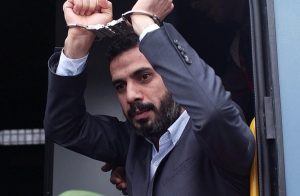
Mehmet Baransu
12 July 2019 – The trial of the former executives of the shuttered daily Taraf and its reporter Mehmet Baransu was held at the 13th High Criminal Court of Istanbul over two days, P24 reported. The accusations in the case stem from the alleged publication of a document called “Egemen War Plan.”
Baransu, the only imprisoned defendant in the case who is in pre-trial detention in the Silivri Prison, was in attendance to continue with his defense statement. Former Taraf executives Ahmet Altan, Yasemin Çongar and Yıldıray Oğur, who are exempt from personal appearance in court, did not attend. They were represented by their lawyers.
Following the completion of statements by lawyers, the prosecutor requested the continuation of Baransu’s detention on remand. At the end of the two-day hearing, the court ordered the continuation of Baransu’s detention. Also ruling to wait for the execution of the arrest warrant against Tuncay Opçin, the fifth defendant in the case, the court adjourned the trial until 27, 28, 29 August.
Link(s):
https://twitter.com/P24DavaTakip/status/1149288074129682432?s=20
https://www.timeturk.com/baransu-nun-tutukluluk-halinin-devamina-karar-verildi/haber-1129492
https://medyascope.tv/2019/07/12/taraf-gazetesi-davasi-baransuya-savunmasini-tamamlamasi-icin-sure-verildi-bir-sonraki-durusma-27-28-29-agustosta/
Categories: Criminal Charges / Fines / Sentences
Source of violation: Court / Judicial
Journalist Hüseyin Aykol sent to prison
11 July 2019 – Veteran journalist Hüseyin Aykol, the former co-editor-in-chief of the shuttered pro-Kurdish newspaper Özgür Gündem, was sent to prison to serve a 3-year and 9-month sentence he was given in 2018, Mezopotamya news agency reported.
Aykol was taken into custody at noon on 11 July at his home in Ankara and was taken to the Sincan Courthouse. After the completion of the procedures at the courthouse, Aykol was sent to the Sincan F Type Prison in Ankara.
Aykol was convicted of “spreading propaganda for a terrorist organization” in January 2018 at the final hearing of a trial where his co-defendants included Mehmet Ali Çelebi and Ayşe Düzkan, who were among journalists who participated in the “substitute editor-in-chief” campaign for Özgür Gündem in 2016. The sentences given to Aykol and his co-defendants were upheld by the 3rd Criminal Chamber of the Istanbul Regional Court of Justice on 29 November 2018.
Aykol is currently a defendant in 63 separate trials, some of which are pending before appellate courts.
Link(s):
http://mezopotamyaajansi21.com/tum-haberler/content/view/63233
https://m.bianet.org/english/freedom-of-expression/210345-journalist-huseyin-aykol-detained
https://www.evrensel.net/haber/382839/gazeteci-huseyin-aykol-cezaevine-goturuldu
Categories: Criminal Charges / Fines / Sentences
Source of violation: Court / Judicial
UPDATE: Former Gazete Karınca publisher’s trial adjourned until October
11 July 2019 – The second hearing in the trial against Necla Demir, the former publisher of the online newspaper Gazete Karınca, took place at the 33rd High Criminal Court of Istanbul, P24 reported. Demir stands accused of “systematically disseminating propaganda for a terrorist organization” for the website’s coverage of Turkey’s 2018 military operation on Syria’s Afrin.
The presiding judge announced that the defense statements presented during the previous courtroom hearing were recorded but the tapes have yet to be transcribed. Lawyer Korkmaz informed the court that his client would be in attendance at the next hearing to make her defense statement in person. Issuing its interim ruling at the end of the hearing, the court adjourned the trial until 11 October 2019 for the delivery of Demir’s defense statement.
Link(s):
https://twitter.com/P24DavaTakip/status/1149290863123750912?s=20
http://gazetekarinca.com/2019/07/gazeteci-necla-demirin-durusmasi-ekim-ayina-ertelendi/
https://www.gazetefersude.com/gazeteci-necla-demirin-yargilandigi-dava-11-ekime-ertelendi-66313/
Categories: Criminal Charges / Fines / Sentences
Source of violation: Court / Judicial
UPDATE: Journalist Mehmet Ali Çelebi released from prison
9 July 2019 – Mehmet Ali Çelebi, an editor for the shuttered pro-Kurdish Özgürlükçü Demokrasi newspaper, was released after 15 months in pre-trial detention, Mezopotamya news agency reported.
The court overseeing the trial of Özgürlükçü Demokrasi staff members had convicted Çelebi of “aiding a terrorist group without being its member” and sentenced him to 3 years and 9 months in prison at the final hearing of the case on 28 June 2019. The court had also ruled for Çelebi’s release, but the journalist remained behind bars due to a previous conviction on the charge of “spreading propaganda for a terrorist group” in last year’s “Özgür Gündem solidarity trial.”
Link(s):
http://mezopotamyaajansi21.com/components/88122611/content/view/63096
http://gazetekarinca.com/2019/07/gazeteci-mehmet-ali-celebi-tahliye-edildi/ https://www.gazetefersude.com/gazeteci-mehmet-ali-celebi-tahliye-edildi-66160/
Categories: Criminal Charges / Fines / Sentences
Source of violation: Court / Judicial
UPDATE: Journalist Mehmet Gündem sentenced to 6+ years of jail
9 July 2019 – The 35th High Criminal Court of Istanbul sentenced journalist Mehmet Gündem to over 6 years in prison on the grounds of “membership in a terrorist organization”, P24 reported.
Addressing the court in his final defense statement, Gündem said: “I have been a journalist for 25 years. I have been using the same phone number since 1995. I have met people from all segments of the society. Some of the names mentioned in the phone records are the people I worked with at Zaman newspaper.” He also denied that he did present a flight risk, requesting his release and acquittal. “I was on vacation when I found out about the arrest warrant against me. I immediately returned and turned myself in. Then I was released. When yet another warrant was issued, I was at home. It is clear that I do not pose a risk of flight.”
Issuing its verdict at the end of the hearing, the court convicted Gündem of “membership in a terrorist group” and sentenced him to 6 years, 10 months and 15 days in prison. The court also ruled to release Gündem pending the appeal process.
Link(s):
https://twitter.com/P24DavaTakip/status/1148498794096578561?s=20
https://www.ntv.com.tr/turkiye/gazeteci-mehmet-gundeme-fetoden6-yil-10-ay-15-gun-hapis,myZwjAqaEU-HQSD1UbABCw
http://www.milliyet.com.tr/gundem/mehmet-gundeme-feto-uyeliginden-6-yil-10-ay-hapis-cezasi-2902134
Categories: Criminal Charges / Fines / Sentences
Source of violation: Court / Judicial
UPDATE: Compensation case against Çiğdem Toker adjourned
9 July 2019 – The third hearing in a lawsuit against journalist Çiğdem Toker, filed by the mining company Şenbay Inc., was held on 9 July 2019 at the Ankara 13th Civil Court of First Instance, online news website T24 reported.
The mining company is seeking a record TL 1.55 million in non-pecuniary damages over an article Toker penned for Cumhuriyet daily in October 2017.
The court agreed to look into the official records of the tender, which was the subject of Toker’s column, as requested by the lawyer representing the company Şenbay Inc. and adjourned the trial until 17 October 2019.
Link(s):
https://t24.com.tr/haber/gazeteci-cigdem-toker-e-acilan-1-5-milyon-liralik-tazminat-davasi-ertelendi,829781
https://www.evrensel.net/haber/382700/gazeteci-cigdem-tokerin-durusmasi-ertelendi
https://www.gercekgundem.com/medya/104386/gazeteci-cigdem-tokerin-durusmasina-erteleme
Categories: Criminal Charges / Fines / Sentences
Source of violation: Corporation / Company
Kars Co-mayor Ayhan Bilgen faces Özgür Gündem indictment
8 July 2019 – The Press Crimes Investigation Bureau of the Istanbul Chief Public Prosecutor’s Office has issued an indictment against Kars Co-mayor Ayhan Bilgen, Mezopotamya news agency reported. The prosecution sent the indictment to a criminal court in Istanbul, which is intended to be merged with the ongoing trial against the shuttered pro-Kurdish newspaper Özgür Gündem main trial. Former executives and members of the advisory board of the shuttered newspaper are face up to life imprisonment as part of the ongoing trial.
The indictment, dated 18 June 2019, accuses Bilgen of “disrupting the unity and integrity of the state,” “membership in a terrorist organization,” “disseminating propaganda for a terrorist organization,” “membership in an organization established for the purpose of committing crimes.” It also says that an investigation had been launched against Bilgen, who was also on Özgür Gündem’s editorial advisory board, as early as 2016. Bilgen’s file was eventually separated because he was a lawmaker at the time.
The 23rd High Criminal Court of Istanbul, which oversees the Özgür Gündem trial, is expected to decide on whether or not to merge Bİlgen’s file with the ongoing trial.
Link(s):
http://gazetekarinca.com/2019/07/ayhan-bilgene-ozgur-gundem-davasi/
https://www.evrensel.net/haber/382650/ayhan-bilgen-hakkinda-ozgur-gundem-davasi
https://www.demokrathaber.org/siyaset/hdp-li-ayhan-bilgen-e-ozgur-gundem-fezlekesi-h71435.html
Categories: Criminal Charges / Fines / Sentences
Source of violation: Court / Judicial
UPDATE: Journalist Parlak released after 15 months in pre-trial detention
8 July 2019 – Ferhat Parlak, a publisher based in Diyarbakır and reporter of the shuttered local newspaper Silvan Mücadele, appeared before a court for the first hearing of his trial on the charge of “membership in a terrorist group.”
The 11th Criminal Court of First Instance of Diyarbakır, which recently accepted the indictment against Parlak, ruled at the end of the hearing to release the journalist from pre-trial detention pending the conclusion of his trial, Mezopotamya news agency reported. The court imposed an international travel ban on Parlak. Parlak, who was jailed in April 2018, has been in detention on remand for 15 months.
News reports and footage from the case file where Parlak was previously convicted of “propaganda” were also included in the new case file. The prosecution seeks up to 15 years in prison for Parlak. The second hearing of the trial will be held on 6 November 2019.
Link(s):
http://mezopotamyaajansi21.com/tum-haberler/content/view/62604
https://m.bianet.org/english/human-rights/210232-journalist-ferhat-parlak-released
http://gazetekarinca.com/2019/07/15-aydir-tutukluydu-gazeteci-ferhat-parlak-ilk-durusmada-tahliye-edildi/
Categories: Criminal Charges / Fines / Sentences
Source of violation: Court / Judicial
UPDATE: Appeals court overturned “coup” convictions in Altan’s case
5 July 2019 – The Supreme Court of Appeals has overturned the 2018 verdict by a criminal court that sentenced journalists Ahmet Altan, Mehmet Altan, Nazlı Ilıcak and three of their co-defendants to aggravated life imprisonment on the charge of “attempting to overthrow the constitutional order.” The verdict will lead to a retrial in one of the most high-profile journalistic trials, according to a report published by the state-run news agency Anadolu late on 5 July 2019.
The 16th Criminal Chamber of the Supreme Court of Appeals ruled that Mehmet Altan should be acquitted, citing lack of sufficient and credible evidence. Mehmet Altan was freed from pre-trial detention in June 2018 by a decision of the appellate court based on a Constitutional Court judgment back in January 2018 and is the only defendant who has been released in the case so far.
As for Ahmet Altan and Nazlı Ilıcak, the court said they should face the lesser charge of “aiding a terrorist organization without being its member.”
The decision, as cited by Anadolu, said it could not be proven that the defendants had participated in the crime of “attempting to overthrow the constitutional order” as perpetrators.
However, the Supreme Court judges rejected requests for the release of Altan, Ilıcak and their three co-defendants in the case, who have all been in prison for about three years.
As for three other defendants in the case, the 16th Criminal Chamber of the Supreme Court of Appeals ruled that Fevzi Yazıcı, the former chief page designer of the shuttered daily Zaman, Yakup Şimşek, the newspaper’s marketing director, and former Police Academy lecturer and commentator Şükrü Tuğrul Özşengül should be charged with “membership in a terrorist organization,” which carries up to 15 years in jail, instead of “attempting to overthrow the constitutional order.”
The case is now expected to be sent back to the trial court, the 26th High Criminal Court of Istanbul, for retrial.
In January 2018, the Constitutional Court ruled that Mehmet Altan’s detention was in violation of his right to personal liberty and security and freedom of the press and freedom of expression. However, both the trial court and the next court of first instance refused to implement the top court’s judgment and release Altan.
In February 2018, the 26th High Criminal Court of Istanbul sentenced the Altans, Ilıcak and three of their co-defendants to aggravated life imprisonment for “attempting to overthrow the constitutional order” as per Article 309 of the Turkish Penal Code (TCK). The indictment claimed that the defendants “had prior knowledge of the coup attempt of July 2016,” which the government claims to have been carried out by the religious movement led by Fethullah Gülen.
On 27 June 2018, the appellate court that took up the case ruled that Mehmet Altan should be released on the basis of the Constitutional Court ruling.
In October 2018, the 2nd Criminal Chamber of the Istanbul Regional Court of Justice, the appellate court overseeing the case, rejected the appeals and ruled for the continuation of detention of all imprisoned defendants in the case.
On 3 May 2019, the Constitutional Court rejected the individual applications filed on behalf of Ahmet Altan and Nazlı Ilıcak. In its reasoned judgments issued on 26 June 2019, the Constitutional Court said “the assessments made by the investigation authorities and the decisions rendered by the courts that ruled for [the journalists’] detention could not be deemed as ‘arbitrary and baseless’.”
Link(s):
https://t24.com.tr/haber/yargitay-dan-altan-kardesler-ve-ilicak-davasindaki-cezalar-icin-bozma-karari,829287
https://www.gazeteduvar.com.tr/gundem/2019/07/05/yargitay-nazli-ilicak-ve-altan-kardeslere-verilen-cezalari-bozdu/
https://www.evrensel.net/haber/382504/yargitay-altan-kardesler-ve-ilicaka-verilen-muebbet-hapis-cezasini-bozdu
Categories: Criminal Charges / Fines / Sentences
Source of violation: Court / Judicial
Journalist Cengiz Erdinç given 10-month prison sentence
4 July 2019 – Journalist Cengiz Erdinç was given a 10-month prison sentence and fined an additional judicial fine of 16,000 Turkish Lira (around $3,000) over an article he penned for the Yurt newspaper, Reporters Without Borders reported. The 2nd Criminal Court of First Instance of Istanbul, which oversaw the trial, found Erdinç guilty of “damaging the reputation” of state bank Ziraat Bank in his article titled “Finansal kara delikler” (Financial black holes).
The court suspended the sentence on the grounds that Erdinç “has shown remorse,” which the columnist denied after the hearing. Erdinç’s lawyer Baran Kaya said he would appeal the verdict.
Link(s):
https://boldmedya.com/2019/07/04/gazeteciden-pisman-deyip-cezayi-erteleyen-mahkemeye-pismanlik-falan-yok/
https://twitter.com/RSF_tr/status/1146711473089130496
Categories: Criminal Charges / Fines / Sentences
Source of violation: Court / Judicial
Columnist Işıl Özgentürk convicted of “inciting hatred”
4 July 2019 – Işıl Özgentürk, a columnist for Cumhuriyet daily, was given a prison sentence of 1 year and 6 months on the charge of “inciting hatred and animosity or degrading the public” by an Istanbul court, online news website Gazete Duvar reported. Özgentürk was on trial over an article she wrote for the newspaper on 13 January 2019, titled “Yeni kuşak türbanlılar” (New generation of hijab wearers).
Based on a previous deferred conviction against Özgentürk, the Istanbul 2nd Criminal Court of First Instance ruled against suspending or deferring the sentence and argued that “the defendant may not refrain from committing the same offense again.”
Link(s):
https://www.gazeteduvar.com.tr/gundem/2019/07/05/isil-ozgenturke-1-yil-6-ay-hapis-cezasi/
https://www.sozcu.com.tr/2019/gundem/isil-ozgenturkun-cezasi-belli-oldu-5214448/
https://www.aa.com.tr/tr/turkiye/isil-ozgenturke-basortululeri-asagilamaktan-hapis-cezasi/1523392
Categories: Criminal Charges / Fines / Sentences
Source of violation: Court / Judicial
UPDATE: Prosecutor seeks life imprisonment for jailed journalist Ziya Ataman
4 July 2019 – The trial of Ziya Ataman, a former reporter of the pro-Kurdish Dicle news agency (DİHA) and 18 other people resumed in the southeastern province of Şırnak, Mezopotamya news agency reported.
Ataman, who has been in detention on remand since 11 April 2016, addressed the Şırnak 1st High Criminal Court which oversees the trial from the prison in Van where he remains jailed.
Submitting their final opinion of the case during the hearing, the prosecution asked the court to convict all nine defendants who are still under pre-trial detention, including Ataman. The prosecution accused them of being guilty of “disrupting the unity and integrity of the state,” “attempting to intentionally kill with premeditation a civil servant because of the public service he performs,” “intentionally killing with premeditation a civil a servant because of the public service he performs,” “attempting to premeditated murder,” “intentionally damaging public property through the use of explosives” and two other charges. The prosecution asked the court to convict Ataman twice of “intentionally killing with premeditation a civil servant because of the public service he performs,” and 32 times of “attempting to intentionally kill with premeditation a civil servant because of the public service he performs.” Ataman has repeatedly denied being involved with the incident, with witnesses confirming his version of the facts.
Lawyers requested additional time for the preparation of the final defense statements in response to the prosecutor’s final opinion. The court told Atman, who asked to make his defense statement in Kurdish, to have his interpreter ready at the next hearing for his defense. Ruling to keep all jailed defendants behind bars, the court adjourned the trial until 24 September 2019.
Link(s):
http://gazetekarinca.com/2019/07/gazeteci-ziya-atamana-savunma-da-tahliye-de-yok-muebbet-isteniyor/
http://mezopotamyaajansi18.com/components/88122611/content/view/62553
http://www.etha1.com/Haberler/tutuklu-gazeteci-ataman-hakkinda-muebbet-hapis-istemi/9/14232
Categories: Criminal Charges / Fines / Sentences
Source of violation: Court / Judicial
UPDATE: Trial of journalists Hürtaş and Demir adjourned until December
3 July 2019 – A trial where journalists Sibel Hürtaş and Hayri Demir are among 11 defendants charged with “inciting hatred and animosity” and “disseminating terrorism propaganda” over their social media posts about Turkey’s military operation on Syria’s Afrin resumed at the Ankara courthouse, P24 reported.
Announcing its interim ruling at the end of the hearing, the court rejected the requests to file for the annulment of TCK Article 301 and to lift the judicial control measures imposed on the defendants. The court set 3 December 2019 as the date for the next hearing.
Link(s):
https://twitter.com/P24DavaTakip/status/1146339093258936320?s=20
https://www.evrensel.net/haber/382362/gazeteci-sibel-hurtas-ve-hayri-demirin-durusmasi-aralik-ayina-ertelendi
Categories: Criminal Charges / Fines / Sentences
Source of violation: Court / Judicial
UPDATE: Özgür Gündem main trial adjourned until November
3 July 2019 – The “Özgür Gündem main trial”, where the former editors, columnists and members of the editorial advisory board of the shuttered pro-Kurdish newspaper were accused of “disrupting the unity and integrity of the state” and “membership in a terrorist group”, resumed at the 23rd High Criminal Court of Istanbul, P24 reported.
The prosecutor, who was expected to submit his final opinion on the case at this hearing, requested more time because of the vast content of a new case file submitted against one of the former editors-in-chief of the paper, Eren Keskin. Granting additional time for the preparation of the final opinion, the court adjourned the trial until 28 November 2019.
Link(s):
https://twitter.com/P24DavaTakip/status/1146293811489988608?s=20
https://t24.com.tr/haber/asli-erdogan-ve-necmiye-alpay-in-yargilandigi-ozgur-gundem-davasi-ertelendi,828854
https://www.evrensel.net/haber/382355/ozgur-gundem-davasinda-savci-mutalaa-icin-sure-istedi
Categories: Criminal Charges / Fines / Sentences
Source of violation: Court / Judicial
UPDATE: Former Zaman journalist Şirin Kabakçı’s trial adjourned until October
2 July 2019 – Şirin Kabakçı, the former Konya bureau chief of the shuttered newspaper Zaman, appeared before the 35th High Criminal Court of Istanbul on for the sixth hearing of his trial on the charge of “membership in a terrorist group”, P24 reported.
In its interim ruling at the end of the hearing, the court ruled to start the procedures for taking the testimony of a witness who asked to benefit from effective remorse provisions, and adjourned the trial until 15 October 2019.
Link(s):
https://twitter.com/mlsaturkey/status/1146071914412220416?s=20
Categories: Criminal Charges / Fines / Sentences
Source of violation: Court / Judicial
UPDATE: Ahmet Altan given prison term over 2010 article
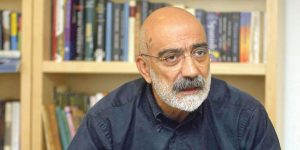 2 July 2019 – Jailed novelist and journalist Ahmet Altan’s trial stemming from an article he wrote in 2010 for the shuttered daily Taraf resumed on 2 July 2019 at the 2nd Criminal Court of First Instance of Istanbul Anatolian courthouse, reported Expression Interrupted outlet.
2 July 2019 – Jailed novelist and journalist Ahmet Altan’s trial stemming from an article he wrote in 2010 for the shuttered daily Taraf resumed on 2 July 2019 at the 2nd Criminal Court of First Instance of Istanbul Anatolian courthouse, reported Expression Interrupted outlet.
Altan, who has been in pre-trial detention in the Silivri Prison since September 2016, addressed the court via the judicial video-conferencing system during the hearing, P24 reported. “In a developed country, no writer would stand trial in a case similar to this one,” Altan told the court in his defense statement. He added: “In politics, there are no sacred figures. If you make a figure part of day-to-day politics, then you are acknowledging that this figure is not sacred and is open to debate.”
Altan was accused of “publicly insulting the memory of Atatürk” in his article titled “CHP,” which was a critical piece about the main opposition Republican People’s Party (CHP).
Addressing the court, Altan’s lawyer Çalıkuşu said that there was no intent of “insult” in the article and requested Altan’s acquittal. Nevertheless, the court decided to give Altan a suspended 1,5-year prison sentence.
Link(s):
https://twitter.com/ExInt24/status/1146063090552692742?s=20
Categories: Criminal Charges / Fines / Sentences
Source of violation: Court / Judicial[/vc_column_text][/vc_column][/vc_row][vc_row][vc_column][vc_basic_grid post_type=”post” max_items=”4″ element_width=”6″ grid_id=”vc_gid:1566403308005-4e1c28f6-af75-3″ taxonomies=”35195″][/vc_column][/vc_row]
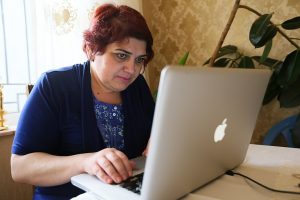








 2 July 2019 – Jailed novelist and journalist Ahmet Altan’s trial stemming from an article he wrote in 2010 for the shuttered daily
2 July 2019 – Jailed novelist and journalist Ahmet Altan’s trial stemming from an article he wrote in 2010 for the shuttered daily